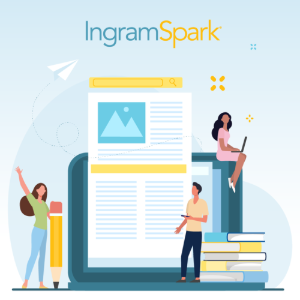Most independent authors don’t consider copyrighting until they're in the process of self-publishing, and that’s okay since it doesn’t have to be done before you publish. It can be a little complicated though, and it's often the last thing writers want to think about during the excitement of self-publishing their work. Getting a firm grasp on what copyrighting means, and the steps you’ll have to take, is essential, and you can do it at any point in your journey.
As you might have surmised from the word itself, copyright means you have the right to copy. With traditional publishing, the publishing company usually has the copyright because they're making copies of your book to sell. Some parts of your book cannot be copyrighted. This includes the title, short phrases, ideas, themes, plot points, characters, and settings. Also, filing in the United States can protect your book in several other countries, but not all of them.
Due to intellectual property laws, anything you write is protected, but you should still register your copyright because it creates a public, searchable record of your work. If you were to need to file an infringement suit, you're required to have already registered the copyright. Better to have it on hand than wait on the registration process before you can proceed. It also makes your book appear more professional.
While it can be a bit tedious, the steps are straightforward.
- Go to copyright.gov/registrations
- Pick the Literary Works category
- Click Register A Literary Work
- Create a new account
- Begin the copyright registration process by clicking on Register One Work by One Author. This will allow you to only pay $45 instead of the $65 required if you used Register a New Claim.
- Fill out the form
- Send payment by debit or credit card or direct deposit
- Send the U.S. Copyright Office your book
Pretty simple, but there are a few more things to note. The U.S. Copyright Office requests that you send the best edition of your book. If you have it in ebook, paperback, and hardcover, then they want a physical copy of the hardcover form. Be aware that this copy of your book will not be returned. Fortunately, you can use IngramSpark’s print-on-demand service to quickly and inexpensively get a copy if you don’t already have one on hand. If your book is only an ebook, it's acceptable to just upload the electronic version.
Additionally, you're allowed to register under a pen name if that’s something you’re interested in. You can submit a paper registration by mail, which costs $85. The processing time varies widely, but the simplest claims, in which you do everything online and only upload an electronic copy of your book, take about 1½ months. If you apply online, but mail a hard copy, it will be 3-5 months on average.
Copyrighting your work will protect you from infringement and, while it’s not strictly mandatory, it’s an uncomplicated task that will take a lot off your mind when you have a lot of other work to do to publish, market, and sell your book.












